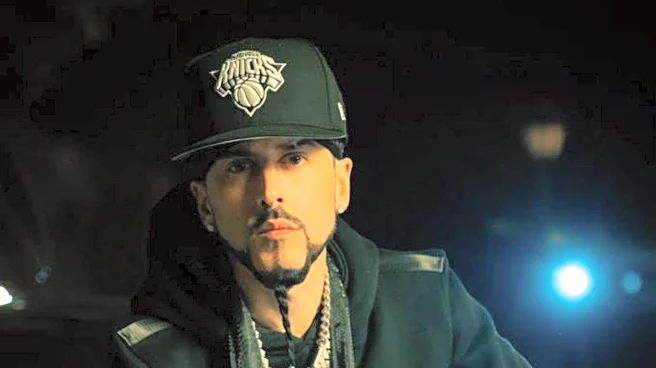What's Happening?
Adamn Killa, a TikTok influencer known for his viral 'Arrest me, daddy' videos, was arrested by a Chicago police officer after interrupting a traffic stop. The influencer, whose real name is Adam Kelly, has gained notoriety for approaching law enforcement
officers and performing his signature dance while asking to be arrested. On Monday, Kelly was handcuffed and briefly detained in a squad car before being released without charges. Despite the arrest, Kelly remains unfazed and continues to create similar content, even involving members of the National Guard in Washington DC.
Why It's Important?
The arrest of Adamn Killa highlights the growing influence and impact of social media personalities on public interactions, particularly with law enforcement. This incident underscores the challenges faced by police officers in managing public disturbances caused by viral stunts. It also raises questions about the boundaries of social media content and its potential to disrupt public order. The event may prompt discussions on the responsibilities of influencers and the need for regulations governing their interactions with public officials.
What's Next?
Following his arrest, Adamn Killa has indicated his intention to continue producing similar content, suggesting that further interactions with law enforcement may occur. This persistence could lead to increased scrutiny from authorities and potential legal consequences if his actions continue to disrupt public duties. Law enforcement agencies may need to develop strategies to address such disturbances while balancing the rights to free expression.
Beyond the Headlines
The incident reflects broader societal trends where social media platforms are used to challenge authority and create entertainment content. It raises ethical considerations about the influence of digital media on public behavior and the potential normalization of disrespect towards law enforcement. Long-term, this could impact cultural perceptions of authority and the role of influencers in shaping public discourse.

















